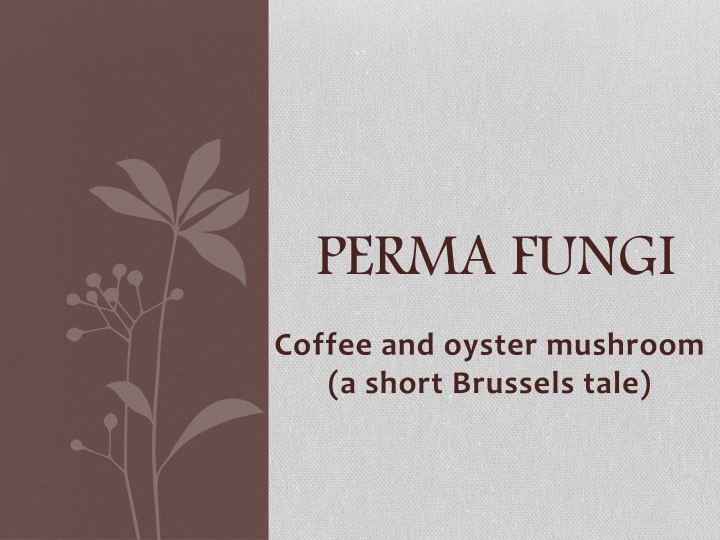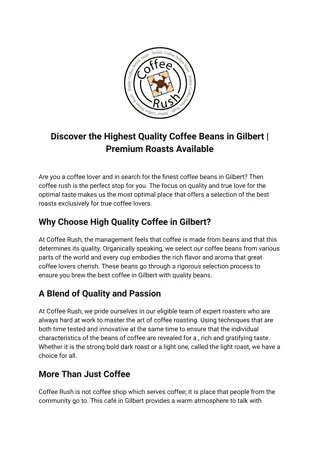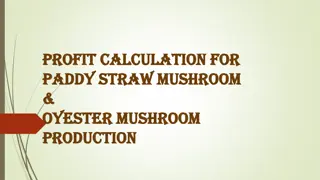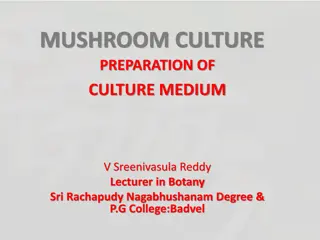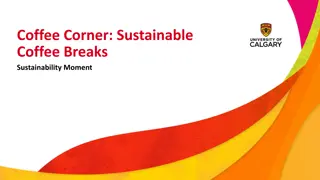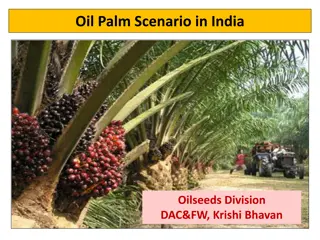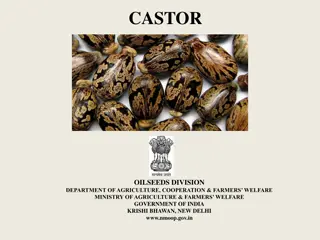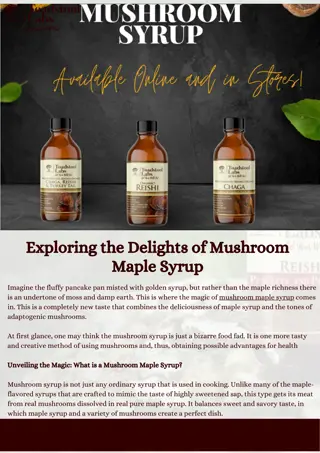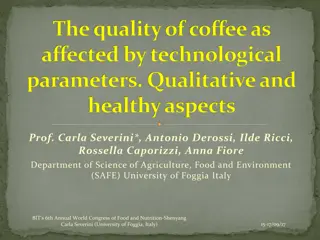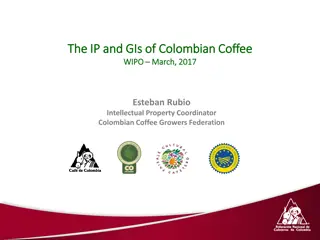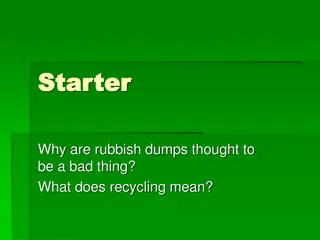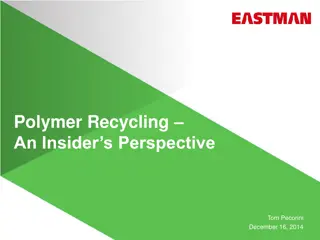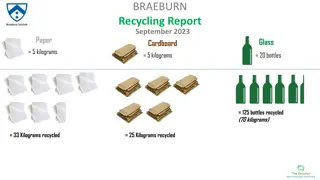Promoting Sustainable Development Through Mushroom Cultivation and Coffee Ground Recycling in Brussels
Our project in Brussels focuses on creating a socially responsible company that produces mushrooms and fertilizer from used coffee grounds. By developing a network of decentralized production, we aim to value organic waste, create sustainable jobs, boost the local economy, and train under-qualified staff. Embracing the concept of resilience, our mission is to bring together social, economic, and environmental aspects to promote sustainable development and strengthen resilience through reducing fossil fuel consumption, developing the local economy, and raising public awareness.
Download Presentation

Please find below an Image/Link to download the presentation.
The content on the website is provided AS IS for your information and personal use only. It may not be sold, licensed, or shared on other websites without obtaining consent from the author.If you encounter any issues during the download, it is possible that the publisher has removed the file from their server.
You are allowed to download the files provided on this website for personal or commercial use, subject to the condition that they are used lawfully. All files are the property of their respective owners.
The content on the website is provided AS IS for your information and personal use only. It may not be sold, licensed, or shared on other websites without obtaining consent from the author.
E N D
Presentation Transcript
PERMA FUNGI Coffee and oyster mushroom (a short Brussels tale)
Our projet With this new technique, we seek to create in Brussels a socially responsible company which: Produces mushrooms and fertilizer from used coffee grounds Sells fresh mushrooms, kits and fertilizer Develops a network of decentralized production The company will: Value an organic source of waste Create sustainable jobs Develop the local economy Train under-qualified staff
Our projet In the medium term, we wish to develop a network of decentralized production. This way, various neighborhoods/districts will have the possibility to: Value the used coffee grounds produced locally Produce high quality food Promote the local economy Raise public awareness
Our Mission It s to promote the sustainable development by bringing social, economic and environmental aspects together. We believe that the concept of resilience upon was built will play an important role in improving and protecting the sustainable nature of our city!
Our Mission The concept of resilience was adopted by Rob Hopkins in his Transition Towns movement studies. Hopkins defines it as "the capacity of a system to absorb disturbance and reorganize while undergoing change, so as to still retain essentially the same function, structure, identity and feedbacks ". As such, we will positively contribute to strengthening resilience by reducing the consumption of the fossil fuels, developing the local economy, training under-qualified staff, raising public awareness, etc.
The culture of the fungus to the oyster mushroom The culture of the fungus requires very important hygiene and appropriate environmental conditions (temperature, humidity, CO2 levels). There are usually three phases: Inoculation: preparing the substrate and are mixed with the seeds of mushrooms (mycelia or 'white'). This work is carried out behind a laminar flow. Behind this barbaric name hides a machine that allows us to work in a sterile environment, much like in a scientific laboratory. Well mixed substrate is then put into large bags that resemble a punching ball.
The culture of the fungus to the oyster mushroom The culture of the fungus requires very important hygiene and appropriate environmental conditions (temperature, humidity, CO2 levels). There are usually three phases: Incubation: the bags prepared during inoculation are then placed in a room of incubation for a period of about 3 weeks. During this phase, the mycelium will colonize the substrate, i.e. that it will expand its network of filaments by "eating" and by breaking down the coffee grounds. All black at the beginning, the bag becomes white. This phase takes place in the dark and in a clean room.
The culture of the fungus to the oyster mushroom The culture of the fungus requires very important hygiene and appropriate environmental conditions (temperature, humidity, CO2 levels). There are usually three phases: Fruiting: when mycelia has colonized the substrate, we will force it to reproduce, and therefore to produce mushrooms (which contains the spores, the reproductive organ of the fungus). For this, he is made suffer a shock of freshness and moisture moving in the room of fruiting, very ventilated space with a humidity of 95%. Oyster mushrooms appear then after a few days and will be collected after a week. Bags then produce a second and a third harvest, before being put to the compost for fertilizer.
